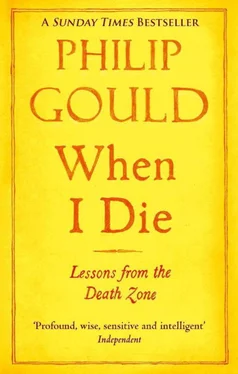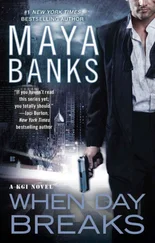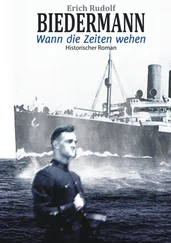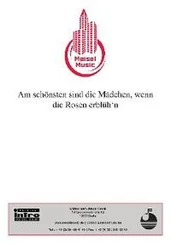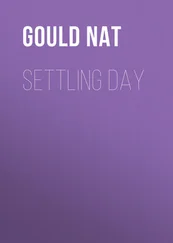He waits until Mum is out of the room and tells me to sort out his papers, to make sure his book gets finished and to get Labour people to the funeral. He wants the church to be packed, and tells me I should get Margaret McDonagh on it.
His sister, Jill, comes by and they spend some time alone together, saying goodbye. They have both been very independent spirits, following their own paths, but I know the closeness between them in his final months was one of his greatest comforts. She is a Church of England priest so is able to give him a religious blessing.
Afterwards Grace sits helping him text, his coordination so bad that communication has become increasingly erratic. We catch him trying to send Ed Victor a text saying ‘These are the best of times, these are the worst of times’; I am not sure he even realises he is channelling Dickens. Alastair later describes a confused message from Peter Hyman asking why Dad has emailed him saying nothing but ‘3–5 days’.
And then suddenly he becomes very focused and determined.
He knows time is slipping away faster now and he has to take his opportunity. The big thing hanging over him is the book. He believes that the common narrative on death is wrong, that dying can be a time of profound growth and happiness. He is desperate to articulate this, to get his thoughts down on paper.
He tries to type, gets nowhere, so begins to dictate to Mum. And it is torture. Mum is helping because it is so important to him but she hates every second of it, knowing he is doing himself so much damage. Grace notes his almost possessed look, eyes half-open and red, voice rasping. He speaks and speaks. Mum fills the pages. He has gone deep inside himself.
I feel intolerable pain as I listen to him struggle to get his words out, his voice a low murmuring grumble.
When it comes down to it, it is not enough for Dad just to have his family around him, though I know it means the world to him. The most important thing to him is his drive, his purpose, his desire to give meaning to the experience of dying. That is why the book means so much to him. And so he digs somewhere deep, beyond his body, for his final spark of energy and reserves to write his parting thoughts. He has been too sick for weeks to do this but somehow he knows it is now or never. He is facing death by fighting with all he has to find meaning in it.
The doctor comes in worried about Dad’s numbers and tells him he has to stop talking, but Dad is determined.
We have told only a handful of people so far, not wanting to force all his friends to live through this with us. But now I think there are some who have to know. I step out to call Pete, his oldest friend from university, who now lives in Boston, Massachusetts. When he answers he says: ‘Georgia, don’t say anything. I’m on the top of a ladder.’ He comes down and I tell him what is happening. I hear the shock in his voice. Like all of us, he had thought there would be more time.
And still Dad talks. Finally he comes to the end and he is so relieved, looking for our praise. He keeps repeating the phrase ‘fought hard today’. We want him to calm down.
Queens Park Rangers are about to kick off against Manchester City. I get the match up on Sky Sports. Dad and I have been QPR season-ticket holders since I was six and have travelled together around the country to watch them.
He gets very excited – ‘Look, it’s Neil Warnock’ – and wants to know why the quality of the picture is so much better than when we watched games in Newcastle. Mum is slightly disapproving so I ask him if he would prefer some Gregorian chants. He looks at me as if I am insane.
‘Georgia, I’m watching the football.’
He keeps trying to lift his arms above his head the way he would do at home. But they are so bloated now, four times their usual size from being attached to all these wires, he cannot quite get them above his bubble hat. It is so sweet, almost comical: such a familiar gesture in this medical world. QPR score an equaliser and his numbers go up.
But he is getting more distressed and his breathing is getting worse, so I turn the game off to try to get him to rest. And so he does not see us lose.
Alastair sends Dad the most beautiful letter. So we read it to him, all in floods of tears, and he, calm as anything, jabs at the laptop screen and says ‘Funeral, funeral.’
He tells us his breathing is getting more difficult now and the nurse ups his sedatives. He suddenly announces, ‘I’m done,’ and we all get a bit panicked. But then he says, ‘I’m done. I’ve finished the book.’
He makes a gasping sound like he is trying to catch the air. Grace and Mum stand on one side hugging each other, Grace’s eyes big and bright from crying, Mum looking at Dad with such tenderness.
He slips into a dazed sleep, then wakes up a bit confused and says, ‘Breathing hard now, breathing a problem, I want to crash out.’ He is not petrified like before. He has steadied himself. He is ready. He looks around and cannot see me on his other side.
‘Where’s Georgia?’
‘Here, Dad,’ I say.
He grabs my hand so tightly and tells us to sort out ‘The Glory of the Ride’, meaning this book. He says ‘Goodnight, love you,’ to each of us in turn. He falls into a light sleep, wakes up, and does the whole thing again.
He is very insistent that it is time for us to go to bed, that we need to get a taxi home. He calls out to the nurse on duty, ‘Ebony, put me to bed now.’ We say, ‘Dad, you are in bed,’ but he barely hears us.
His last words are: ‘I’m going to crash out now, I’m done.’
And he falls into a deep sleep.
Is he scared? How much does he know? I cannot know for sure, but I remember Alastair, years ago at a Labour Party event, reading a quote from an American football coach: ‘I firmly believe that any man’s finest hour, the greatest fulfilment of all that he holds dear, is that moment when he has worked his heart out in a good cause and lies exhausted on the field of battle – victorious.’ And I feel that is where Dad is at this moment.
He has fought as hard as he can. He has the people he loves around him and he is ready to fall into his dreams.
Later, Mum, tears rolling down her face, reads to us Dylan Thomas’s poem, ‘Do not go gentle into that good night… rage, rage against the dying of the light.’ In the end he is not going gently. He is going the way he has lived, with determination, purpose and resolve, fighting to make every second count.
The nurse tells us that it would be better if we stayed the night, so when it is clear he is fast asleep we move to the little relatives’ room next door. The nurses promise to call if anything happens.
Grace and I run home to grab some spare clothes and wash stuff. Before I go I tell Mum it is time to let people know what is happening. She composes a beautiful email and we send it to an old mailing list, not really sure who is or is not on it.
Sunday, 6 November
We rest on an improvised construction of sofa beds and pillows. I barely sleep, waking at around four in the morning. I must have been making a lot of noise because Mum very drily suggests that I go and sit with Dad.
So I do, sitting with him and the nurse, listening to Bob Marley gently playing in the background. The nurse has taken a lot of care to get him comfortable, tidy up his tubes. He looks well but firmly asleep. She says she stopped giving him sedatives at about midnight.
Grace and Mum come through an hour later and we all sit around him, not really sure why he is not waking up. His breathing seems strong and his numbers are fine.
Eventually a young doctor comes by on his rounds. He asks us if Dad was talking a lot yesterday. And we say yes, all day. The doctor describes how the effort of speaking emitted so much carbon dioxide into his blood that Dad created a natural sedative, gassing himself into unconsciousness. ‘Like if you gas yourself in a car?’ Mum asks, incredulous.
Читать дальше
